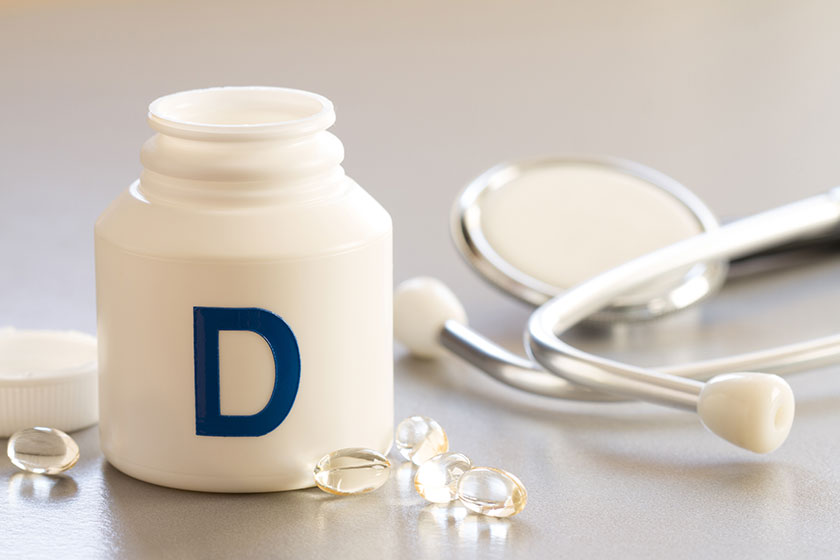As we age, maintaining bone health becomes increasingly important. Strong bones are essential for leading an active lifestyle, preventing fractures, and supporting overall well-being. For individuals in retirement, incorporating bone health supplements can be a key component of a comprehensive health strategy. Here are the top five supplements that are particularly beneficial for bone health in older adults.
Calcium
Calcium is fundamentally important for maintaining strong bones, especially as we age. It is the most abundant mineral in the body and primarily resides in our bones and teeth, supporting their structure and hardness. For older adults, particularly those living in retirement communities where nutritional needs are keenly supported, maintaining adequate calcium intake is crucial. The recommended daily intake for adults over the age of 50 is about 1,200 mg, which can be a challenge to achieve through diet alone.
This makes calcium supplements a practical choice for ensuring sufficient levels are met. Foods rich in calcium such as dairy products, green leafy vegetables, and calcium-fortified foods, when combined with supplements, can help maintain optimal bone density and reduce the risk of fractures, which are common in older adults due to decreased bone strength.
Vitamin D
Vitamin D is essential not only for bone health but for overall well-being, particularly in older adults. It facilitates the absorption of calcium and promotes bone growth and remodeling. Seniors are at a higher risk of vitamin D deficiency due to decreased skin efficiency in synthesizing vitamin D from sunlight and often limited outdoor exposure. Furthermore, the kidneys, which help convert vitamin D to its active form, become less efficient with age.
Health professionals recommend a daily intake of 800 to 1,000 IU for seniors, but achieving this through sunlight and diet alone can be difficult. Supplementing with vitamin D can bridge this gap, ensuring adequate levels to support bone health. Regular vitamin D intake is particularly vital for residents in retirement communities, where teams are proactive in managing the health of their members, ensuring they receive comprehensive care that includes adequate vitamin D levels to support bone health and prevent osteoporosis.
Magnesium
Magnesium is integral to bone integrity and the overall health of the musculoskeletal system. It aids in the activation of vitamin D, which is crucial for optimal calcium absorption, and is involved in over 300 biochemical reactions in the body, many of which benefit bone health. Adequate magnesium intake is associated with improved bone crystal formation, increased bone density, and a lower risk of osteoporosis in older adults.
Seniors, particularly those in retirement communities where health monitoring is more consistent, might not get enough magnesium in their diet, which can include whole grains, nuts, and green leafy vegetables. The recommended daily intake for older adults is 320 mg for women and 420 mg for men. Considering the challenges of dietary restrictions and the common decrease in nutrient absorption with age, magnesium supplements can be an effective way to ensure that residents receive the necessary amounts to support their bone health.
Vitamin K2
Vitamin K2 is crucial for bone health as it aids in the carboxylation of osteocalcin, a protein that binds calcium to bones, thus enhancing bone strength and density. Unlike vitamin K1, which is typically involved in blood clotting, K2 is more directly associated with regulating calcium deposition in bones and teeth.
Adequate levels of vitamin K2 can help prevent the calcification of arteries and soft tissues, a common issue in older adults, while promoting the strengthening of bones. This vitamin is not as prevalent in the Western diet and is primarily found in fermented foods like natto, or in smaller amounts in dairy and meat.
Given these dietary sources may not be consumed regularly, especially by those with dietary restrictions in retirement communities, supplementing with vitamin K2 can be particularly beneficial. Ensuring adequate intake of this vitamin can significantly reduce the risk of fractures and contribute to the overall health and mobility of older adults.
Collagen
Collagen is a protein that makes up a significant part of our bones, providing structure and strength. As we age, our body’s natural collagen production decreases, which can impact bone density and strength. Collagen supplements have been shown to improve bone metabolism and increase bone density, making them a valuable addition to a bone health regimen.
Remember, it’s important to consult with a healthcare provider before starting any new supplement regimen to ensure it’s safe and appropriate for your individual health needs. In the right setting, such as a supportive retirement community, residents can find the resources and team support they need to live better and healthier in their golden years.







